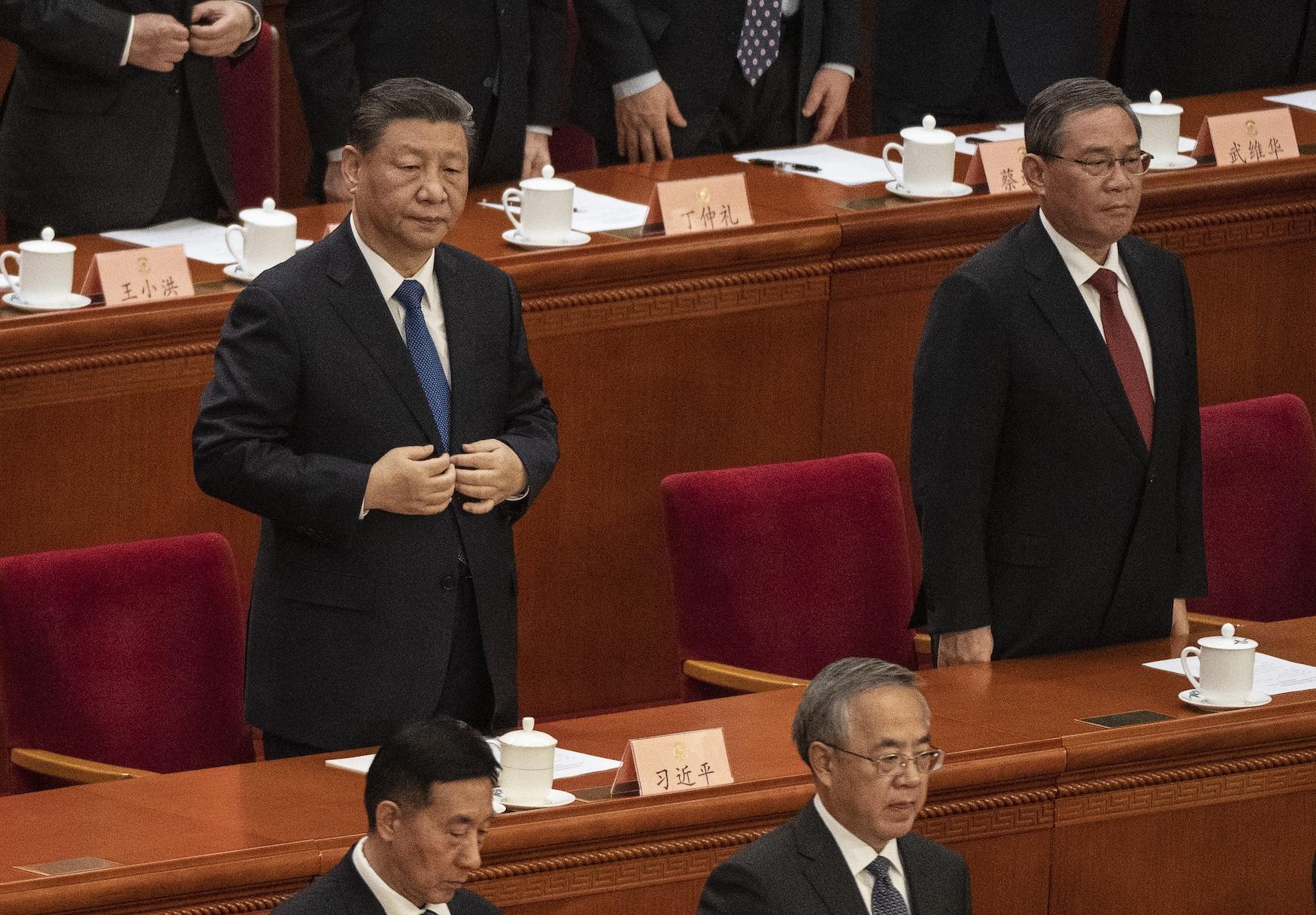
Held on 5-11 March, China’s National People’s Congress, the most important event in the country’s annual political calendar, was remarkable mainly for how unremarkable it was this year.
Premier Li Qiang’s report on the work of the government echoed most of the priorities presented a year earlier by his predecessor, the late Li Keqiang. No major policy initiatives were announced. And even China’s economic targets remained largely unchanged.
The most noteworthy event during the People’s Congress was a non-event, the cancellation of the premier’s press conference usually held after the close. The press conference has been a staple of the People’s Congress since 1991, offering local and international media a unique chance to pose questions to China’s second-in-command.
The cancellation was seen by some as a sign of Li’s unwillingness to open himself up for questioning. But the real message was that from now on China has only one spokesperson, party general secretary and national president Xi Jinping.
Since being appointed premier in March last year, Li has been at pains to show deference to his boss. He flies in chartered aeroplanes rather than the Chinese equivalent of Air Force One, to which he is entitled. And he has reduced the frequency of meetings of the State Council, which he chairs. The council, somewhat like a national cabinet, is a part of the state, not the Chinese Communist Party. So downgrading it is a significant nod to the priority given by Xi to the party over the state apparatus. Also, Li’s portraits appear on neither the cabinet website nor major news portals. Headlines about Xi dominated news of the People’s Congress, which has traditionally been the premier’s show.
Since rising to power in 2012, Xi has dismantled the system of checks and balances carefully crafted by Deng Xiaoping to prevent one-man rule, and there is now no question that he is China’s most powerful leader since Mao Zedong. With a Politburo Standing Committee filled with elderly acolytes, Xi has no heir apparent, and it is now also clear that he doesn’t have a second-in-command.
In Party of One: The Rise of Xi Jinping and China’s Superpower Future, Chun Han Wong analyses Xi’s ascent to power, and the challenge that his one-man rule poses for China. Wong has written widely about Chinese politics and has covered China for the Wall Street Journal since 2014 from Beijing and, since he was expelled in 2019, from Hong Kong.
Wong traces Xi’s unshakeable belief in the Chinese Communist Party back to childhood and youth. Xi’s father, Xi Zhongxun, a high party official, was purged by Mao, and Xi himself was sent to work in a village for seven years during the Cultural Revolution—but these experiences seem only to have reinforced his faith in the party. As a leaked US diplomatic cable put it, Xi chose ‘to survive by becoming redder than red’.
In retrospect, it seems clear that Xi set his sights on the top job early in his career, carefully masking his intentions, forging alliances and moving ever closer to the pinnacle of power. He gained valuable work experience from rural provinces, once confiding to a friend that this was the ‘only path to central power’, and he carefully built up his support network.
Wong walks the reader through the gradually intensifying measures introduced by Xi once he was in charge. These include his anti-corruption campaign, the establishment of China’s surveillance state, the rewriting of history to minimise the roles of his predecessors, and building up China’s assertive wolf-warrior diplomacy. Wong’s book is a must-read for anyone wishing to understand exactly how Xi consolidated his position.
The author concludes with a chapter on the future. Political succession in the People’s Republic has almost never been smooth. Under Mao, two anointed successors died: Liu Shaoqi after being purged and then detained by Red Guards during the Cultural Revolution, and Lin Biao in a 1971 plane crash that has never been fully explained.
After Mao died in 1976, Deng took only two years to sideline his chosen successor, Hua Guofeng. Deng subsequently ousted two heirs apparent, Hu Yaobang and Zhao Ziyang, before handing the reins of power to Jiang Zemin in 1989. To secure his own rise to power, Xi orchestrated the purge of a rival, the charismatic Bo Xilai, in 2012. And he ensured that Li Keqiang, another rival, was not designated in the 2017 party congress as the future number one.
China faces myriad challenges, from a sluggish economy, a huge property bubble and a demographic time bomb to deeply indebted local governments. But the fact that it is run by one man who is unwilling either to share power or to designate a successor may yet prove to be its biggest problem.